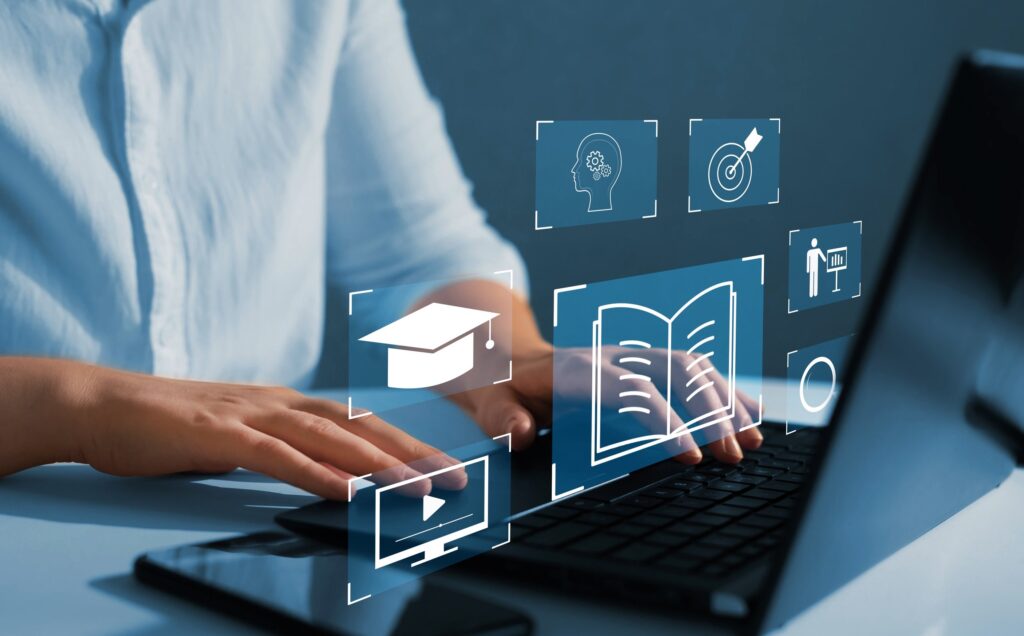Artificial Intelligence (AI) is making significant strides in the realm of education by driving personalized learning experiences tailored to individual student needs. Personalized learning, as an educational approach, aims to provide customized lessons, resources, and pacing that match a learner’s abilities and preferences. By analyzing data such as learning styles, performance metrics, and engagement levels, AI can adapt educational content to ensure that each student receives instruction in a way that is most effective for them.
AI-powered adaptive learning platforms are one of the key ways in which personalized learning is being implemented. These platforms use machine learning algorithms to assess a student’s strengths, weaknesses, and learning pace. Based on this data, the system adjusts the difficulty level of lessons or assignments in real time. For example, if a student struggles with a particular math concept, the AI can offer additional practice problems or instructional videos to help the learner grasp the topic. Conversely, if a student demonstrates mastery, the AI might accelerate the curriculum, allowing them to move on to more advanced material without waiting for their peers. This tailored approach ensures that no student is left behind or held back by a one-size-fits-all teaching method.
AI also enhances personalized learning through intelligent tutoring systems. These systems function like virtual tutors, providing real-time feedback and guidance to students as they work through problems or assignments. Unlike traditional tutoring, which may require scheduling and availability constraints, AI tutors are accessible 24/7, providing on-demand support. These systems can detect when a student is confused or making repeated errors and offer explanations, hints, or alternative teaching methods. This immediate feedback is crucial in helping students overcome learning obstacles and improving retention.
Natural Language Processing (NLP), a subset of AI, plays a significant role in enhancing personalized learning by enabling AI systems to interact with students more naturally. AI-based chatbots and virtual assistants can answer questions, provide clarification on topics, and even engage in educational conversations with students. These AI tools can simulate human-like interaction, helping learners feel supported even in the absence of a live teacher. Moreover, NLP-driven systems can analyze student-written essays or reports to provide personalized feedback on writing skills, grammar, and argument structure, helping students improve their communication abilities.
Another area where AI is making a substantial impact is in personalized content recommendation. Just as streaming services like Netflix suggest movies or shows based on a user’s preferences, AI-driven learning platforms recommend educational content, such as videos, articles, and exercises, that align with a student’s interests and learning objectives. This creates a more engaging and motivating learning experience, as students are presented with resources that resonate with their personal goals or curiosity. Personalized recommendations help make learning feel more relevant and enjoyable, which can increase student engagement and foster a deeper connection to the subject matter.
AI-driven analytics can also be used to create personalized learning pathways for students. By analyzing a student’s performance over time, AI can predict future learning needs and suggest tailored learning plans. For example, AI might identify gaps in a student’s knowledge based on their past performance and recommend targeted activities to fill those gaps before moving on to more complex topics. This proactive approach ensures that students build a solid foundation of understanding, preventing issues that could arise from advancing through the curriculum without mastering key concepts.
For teachers, AI offers invaluable support in implementing personalized learning by automating time-consuming tasks such as grading, administrative work, and data analysis. AI-powered grading systems can evaluate multiple-choice quizzes, essays, and even open-ended questions, providing instant feedback to students while freeing up teachers to focus on more personalized instruction. AI can also analyze classroom performance data to identify students who may need additional support, enabling teachers to intervene early and provide targeted assistance.
Despite the many benefits of AI in personalized learning, there are challenges to be addressed. One concern is data privacy, as AI systems often rely on collecting and analyzing student data to provide personalized experiences. Safeguarding this information and ensuring that it is used responsibly is crucial. Additionally, while AI can enhance education, it is not a replacement for human teachers. The role of teachers in providing emotional support, mentorship, and creativity remains irreplaceable, and AI should be viewed as a tool to augment, rather than replace, human instruction.
Overall, AI is reshaping personalized learning by making education more adaptable, efficient, and responsive to individual student needs.


